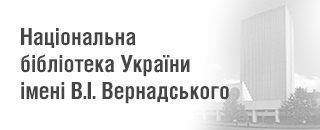COOPERATION OF STATE AUTHORITIES WITH CIVIL SOCIETY ORGANIZATIONS IN THE REPUBLIC OF TURKEY
DOI:
https://doi.org/10.31470/2786-6246-2023-3-84-92Keywords:
Republic of Turkey, non-governmental organisations, self-government, civil service, democracy, public organisationsAbstract
The article analyses the issue of cooperation between public authorities and civil society organisations in the Republic of Turkey. The study examines the key aspects of this cooperation, relying on a scientific and legal approach, in order to facilitate an objective analysis and understanding of this issue. This paper outlines the key aspects of this cooperation, the legal framework and current trends.
The article examines the legal framework governing cooperation between public authorities and civil society organisations in Turkey. The article pays special attention to the legal regulation of cooperation between public authorities and civil society organisations in Turkey. The author analyses the current legislation, its impact on the development of this cooperation and identifies opportunities for improving legal regulation. The study pays special attention to the analysis of legislative acts, provisions and regulations that govern the relations between these two entities. It shows the evolution of this legal framework over the years and identifies key changes that have taken place in the legislation and that have affected cooperation between the sectors of the state and civil society.
In addition, the article examines current trends in cooperation between public authorities and civil society organisations, in particular in the context of the role of this cooperation in solving social problems and supporting democratic processes. Current trends of cooperation in this area are discussed in the context of current social challenges and tasks. The importance of this cooperation for solving complex problems, such as social integration, human rights, environmental issues and many others, is emphasized from the point of view of scientific analysis.
Final conclusions based on a scientific analysis of the legal environment contribute to understanding the effectiveness of the current legal framework and identify opportunities for further improvements. Particular attention is paid to the transparency, flexibility and adaptability of legislation in the context of changing conditions and requirements of modern society, which will further optimize cooperation between the public and civil society sectors in Turkey on a scientific and objective basis.
References
Doyle, Jessica L. (2017). State control of civil society organizations: the case of Turkey. Democratization, 24 (2), 244–264 [in English].
Easton-Calabria, E., & Wood, J. (2020). Bridging, Bonding, and Linking? Syrian Refugee-led Organisations and Integration in Berlin. Journal of Ethnic and Migration Studies, 47 (19), 4308–4326 [in English].
Funds for NGO`s. Retrieved from https://www.fundsforngos.org [in English].
Geçici, Koruma (2021). Directorate General of Migration Management. Retrieved from https://www.goc.gov.tr/gecici-koruma5638 [in English].
Heper, M., & Yıldırım, S. (2011). Revisiting Civil Society in Turkey. Southeast European and Black Sea Studies, 11 (1), 1–18 [in English].
Onder, Murat & Ayhan, Emrah (2018). Financial Vulnerability of NGOs in Turkey. The Case of Youth NGOs in South-East Anatolia and Mediterranean Regions, 2, 1040–1051 [in English].
Search for Laws, Regulations in Turkey. Retrieved from http://www.lawsturkey.com/ [in English].




